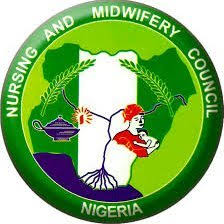Healthcare delivery in Nigeria came to a grinding halt this week as the National Association of Nigeria Nurses and Midwives (NANNM) commenced a seven-day nationwide warning strike, leaving thousands of patients stranded and disrupting medical services across federal, state, and local health facilities.
The industrial action, which followed the expiration of a 15-day ultimatum to the federal government, is in protest of poor remuneration, critical staff shortages, unpaid allowances, and hazardous working conditions faced by nurses nationwide. The strike is not just a demand for better pay—it is a clarion call for systemic reform, safety, and recognition of the vital role nurses play in the healthcare ecosystem.
Empty Wards, Abandoned Patients Across Nigeria
From the Federal Capital Territory to states as far-flung as Borno, Lagos, Kano, and Bayelsa, the consequences of the strike were immediate and devastating. In hospitals and health centres, patients waited in vain for attention, only to be turned back or discharged prematurely.
In Abuja, major hospitals such as Abaji General Hospital, Kwali, and Kuje general hospitals wore an eerie silence. Wards were deserted, emergency units locked, and patients left with no option but to seek care elsewhere or return home untreated. Some women who had recently undergone surgery were left unattended, while patients like Kabiru Alhassan, who had waited for hours to see a doctor, had to resort to buying drugs from informal vendors.
Similarly, in the General Hospital in Kubwa, while the strike was in full compliance, some nurses discreetly remained in the labor ward for emergencies—without their uniforms, an indication of their commitment to life-saving duties even amid protest.
At the National Hospital Abuja and the Federal Medical Centre, Jabi, medical care slowed to a crawl. Non-nursing staff and interns attempted to fill the gap, but their efforts were overwhelmed by the demand.
Impact Reverberates in Teaching Hospitals and States
In Jos, Plateau State, services at the Jos University Teaching Hospital (JUTH) were crippled. Dr. Peter Onuminya, Head of the Accident and Emergency Department, emphasized that the absence of nurses severely hindered emergency care. “Healthcare is a team effort. The nurses are indispensable in the care chain,” he lamented.
In Bauchi, the antenatal sections of Abubakar Tafawa Balewa University Teaching Hospital and Bauchi Specialist Hospital were largely abandoned. At the University of Maiduguri Teaching Hospital in Borno, patients like Asabe Yakubu expressed frustration at the lack of care, especially for follow-up treatments.
Healthcare institutions in Kano and Benue States also bore the brunt of the strike. Hospitals like Murtala Mohammed Specialist Hospital and Benue State University Teaching Hospital reported skeletal services. In some cases, interns and doctors tried to manage emergency situations, though with limited success.
Ilorin, Bayelsa, and Lagos: A Portrait of Desperation
At the University of Ilorin Teaching Hospital, the effects were dire. Many patients were hurriedly discharged, while those with serious conditions were left unattended. Some patients were forced to consider home treatment as a last resort, with relatives stepping in to dress wounds and administer medications.
In Bayelsa, hospitals discharged patients abruptly. Primary Health Centres like the one in Amarata, Yenagoa, remained shut well into the morning. At the Federal Medical Centre in the state capital, nurses strictly enforced the strike, refusing to allow even skeletal services.
In Lagos State, the Lagos State University Teaching Hospital (LASUTH) was desolate. Red ribbons cordoned off wards, while frustrated patients wandered in search of care. Some blamed healthcare professionals for the recurring strikes, accusing them of indifference to patient suffering.
Protests in the South-West and Renewed Calls for Reform
In Oyo State, nurses at the University College Hospital, Ibadan, joined the strike en masse. During an emergency congress, they reaffirmed their commitment to the industrial action, citing long-standing issues such as inadequate staffing, lack of career progression, and the demand for a dedicated directorate for nursing within the Federal Ministry of Health.
Edo State hospitals, including the University of Benin Teaching Hospital and the Central Hospital, Benin, also experienced full compliance with the strike directive.
Government Response and Looming Indefinite Action
In response to the growing health crisis, the federal government, through the Minister of Labour and Employment, Muhammad Maigari Dingyadi, appealed to the union to return to the negotiation table. He stressed that dialogue—not strikes—was the only viable path to resolving the health sector’s chronic issues.
A meeting between the Ministry of Health and NANNM is scheduled for Friday, where the government hopes to broker a truce. However, the union has already hinted at the possibility of a full-blown indefinite strike if their demands are not met after the current warning action.
Experts Warn of Escalating Humanitarian Crisis
Medical experts have sounded the alarm on the potential consequences of a prolonged strike. Dr. Adeniyi Kolawole cautioned that emergency cases, particularly involving maternal or ICU patients, could end in tragedy if not urgently addressed. Rukayat Hassan, another practitioner, urged immediate government intervention to avert loss of lives.
A Cry for Justice
While the strike has paralyzed healthcare across Nigeria, its underlying message is clear: nurses—who form the backbone of patient care—deserve better. Their demands are not merely financial; they encompass dignity, safety, and recognition within a struggling system.
Unless urgent steps are taken to address their grievances, the consequences may go beyond delayed treatment—they may result in lost lives, and an even deeper erosion of trust in Nigeria’s fragile health system.




